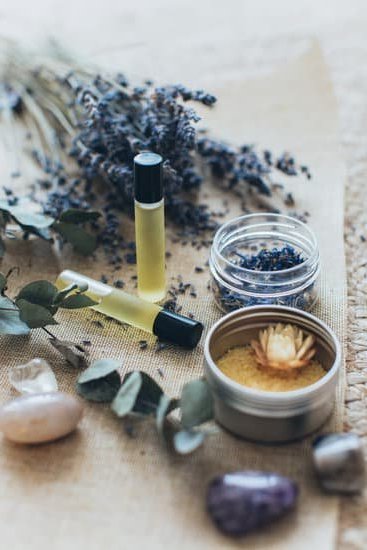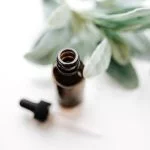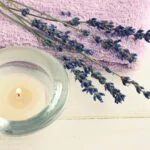Aromatherapy has long been recognized for its calming and soothing effects on the mind and body, making it a popular natural remedy for anxiety. In recent years, more and more people have turned to aromatherapy as a holistic approach to manage stress and promote relaxation. In this article, we will explore what aromatherapy oils to use for anxiety, delving into the science behind their effectiveness and the top essential oils known for their calming properties.
The use of aromatherapy in treating anxiety can be traced back to ancient civilizations, where plant extracts were used for their therapeutic benefits. Today, the practice of aromatherapy involves using essential oils extracted from plants to promote physical and emotional well-being. These aromatic oils work by stimulating the olfactory system and triggering the limbic system in the brain, which is responsible for regulating emotions and memory.
Research has shown that certain aromatherapy oils have potent properties that can help alleviate symptoms of anxiety. From lavender and chamomile to bergamot and ylang ylang, each essential oil offers unique benefits in promoting relaxation and reducing stress levels. By incorporating these oils into your daily routine, you can harness the power of aromatherapy to naturally manage anxiety and improve your overall sense of well-being.
Understanding the Science Behind Aromatherapy and Anxiety Relief
Aromatherapy, the practice of using essential oils for therapeutic purposes, has been gaining popularity for its potential benefits in promoting relaxation and reducing anxiety. But what exactly is the science behind how aromatherapy works to alleviate feelings of stress and anxiety? It all comes down to our sense of smell and the impact that certain scents can have on our brain.
When we inhale the aromatic molecules from essential oils, they travel through the nose and stimulate the olfactory nerves. These nerves are directly connected to the limbic system, which is the part of the brain responsible for emotions, memories, and behavior. The limbic system plays a crucial role in regulating our responses to stress and anxiety. By activating this region of the brain, aromatherapy oils can help promote a sense of calmness and relaxation.
Research has shown that specific essential oils possess compounds that can influence neurotransmitters in the brain, such as serotonin and dopamine, which play key roles in mood regulation. For example, lavender essential oil contains linalool and linalyl acetate, compounds known for their calming effects. Similarly, bergamot essential oil contains limonene and linalool, which have mood-boosting properties. Understanding these chemical components can help us choose the right aromatherapy oils to use for anxiety based on their therapeutic benefits.
| Aromatherapy Oil | Therapeutic Benefit |
|---|---|
| Lavender Essential Oil | Calming effects due to linalool and linalyl acetate |
| Bergamot Essential Oil | Mood-boosting properties from limonene and linalool |
Top Aromatherapy Oils Known for Their Calming Effects on Anxiety
Aromatherapy has been gaining popularity for its potential to alleviate stress and anxiety naturally. The use of aromatherapy oils for anxiety relief is a gentle yet effective way to calm the mind and relax the body. Many essential oils are known for their calming effects on anxiety, which can help promote a sense of well-being and peace during times of tension.
One of the top aromatherapy oils recommended for anxiety is lavender essential oil. Lavender has been widely studied for its relaxing properties and is often used in aromatherapy practices to promote relaxation and reduce feelings of anxiety. Its soothing scent can help calm the nervous system, making it an ideal choice for those looking to ease their anxiety symptoms naturally.
Another popular option is chamomile essential oil, known for its gentle and calming effects on both the mind and body. Chamomile is often used in aromatherapy as a natural remedy for promoting relaxation and reducing stress levels. Its subtle floral aroma can help create a sense of peace and tranquility, making it a valuable tool for managing anxiety symptoms effectively.
Bergamot essential oil is another excellent choice for individuals looking to reduce anxiety and improve mood. This citrusy-scented oil has uplifting properties that can help alleviate feelings of worry and tension. By incorporating bergamot essential oil into your aromatherapy routine, you can enjoy a boost in mood while also finding relief from symptoms of anxiety.
Lavender Essential Oil
There are several ways to use lavender essential oil for anxiety relief. One common method is through inhalation, either by adding a few drops to a diffuser or by placing a drop on a cotton ball and inhaling the scent directly. Another option is to dilute the oil with a carrier oil, such as coconut or jojoba oil, and apply it topically to pulse points like the wrists or temples.
Here are some ways in which lavender essential oil can be incorporated into your daily routine for anxiety relief:
- Add a few drops to a warm bath before bedtime to relax and unwind.
- Mix with a carrier oil and massage onto the skin for a calming effect.
- Diffuse in your home or workspace throughout the day to create a soothing atmosphere.
Incorporating lavender essential oil into your self-care routine can be an effective way to naturally manage feelings of anxiety and promote overall well-being. Remember that individual responses to aromatherapy oils may vary, so it’s important to experiment and find what works best for you.
Chamomile Essential Oil
One of the key components of chamomile essential oil that contributes to its anxiety-relieving effects is bisabolol, which has been found to have anti-inflammatory and relaxation-inducing properties. This natural compound helps calm the mind and body, making chamomile oil a valuable tool in managing symptoms of anxiety. Additionally, the pleasant aroma of chamomile oil can help create a peaceful atmosphere, further enhancing its ability to promote relaxation and reduce stress.
To experience the benefits of chamomile essential oil for anxiety relief, there are several methods of aromatherapy that can be utilized. Diffusing chamomile oil in a room using an essential oil diffuser allows the aromatic compounds to disperse into the air, creating a comforting environment that promotes relaxation.
Alternatively, adding a few drops of chamomile oil to a warm bath or mixing it with a carrier oil for massage can provide a more direct and immersive experience with the calming effects of this gentle essential oil. By incorporating chamomile essential oil into your aromatherapy routine, you can harness its natural properties to support your emotional well-being and manage feelings of anxiety effectively.
Bergamot Essential Oil
When it comes to choosing the right aromatherapy oil for anxiety relief, Bergamot Essential Oil is a popular choice known for its unique citrusy scent and powerful mood-elevating properties. This essential oil is extracted from the peel of the bergamot fruit, which is a hybrid of lime and bitter orange. Bergamot oil is often used in aromatherapy due to its ability to reduce stress, anxiety, and depression while promoting feelings of relaxation and well-being.
Here are some benefits of using Bergamot Essential Oil for anxiety relief:
- Calming Effects: The soothing aroma of bergamot oil can help calm the mind and reduce feelings of stress and tension.
- Mood Enhancement: Bergamot oil is known for its uplifting qualities that can boost mood and promote a sense of happiness.
- Anxiety Reduction: Inhalation or diffusing bergamot oil can help alleviate symptoms of anxiety, such as racing thoughts or restlessness.
In addition to its emotional benefits, Bergamot Essential Oil has also been studied for its potential effects on physical health. Some research suggests that this essential oil may have antibacterial, anti-inflammatory, and pain-relieving properties when used topically. However, it’s important to dilute Bergamot oil properly before applying it to the skin to prevent sensitization or irritation.
Overall, Bergamot Essential Oil offers a natural and aromatic solution to reducing anxiety symptoms and promoting overall well-being. Whether used in a diffuser, bath soaks, or massage oils, the refreshing citrus scent of bergamot can provide a sense of calmness and positivity during stressful moments. Experiment with incorporating this essential oil into your daily routine to harness its mood-boosting benefits and find relief from anxiety naturally.
Ylang Ylang Essential Oil
Benefits of Ylang Ylang Essential Oil for Anxiety
Ylang Ylang essential oil is derived from the flowers of the Cananga tree and is well-known for its sweet, floral scent. This aromatic oil has been used for centuries in aromatherapy to promote relaxation, reduce stress, and improve mood.
When it comes to anxiety relief, ylang ylang essential oil is highly regarded for its calming properties that can help soothe both the mind and body. Its pleasant aroma can create a sense of tranquility and inner peace, making it an effective tool in managing anxiety symptoms.
How Ylang Ylang Essential Oil Works on Anxiety
The chemical components of ylang ylang essential oil contribute to its anxiety-relieving effects. The oil contains linalool, which has been found to have relaxing and sedative properties that can help alleviate feelings of tension and nervousness.
Additionally, ylang ylang essential oil has a naturally uplifting quality that can boost mood and reduce feelings of sadness or depression often associated with anxiety disorders. By inhaling the scent of ylang ylang essential oil through diffusion or topical application, individuals may experience a sense of calmness and emotional balance.
Using Ylang Ylang Essential Oil Safely for Anxiety Relief
When using ylang ylang essential oil for anxiety relief, it is important to do so safely to maximize its benefits and minimize any potential risks. It is recommended to dilute the essential oil with a carrier oil before applying it to the skin to avoid irritation or sensitization.
Additionally, practicing proper inhalation techniques through diffusion or aromatherapy inhalers can enhance the effectiveness of ylang ylang essential oil in reducing anxiety symptoms. As with any essential oil, it is advisable to perform a patch test before extensive use to ensure compatibility with individual sensitivities or allergies.
Frankincense Essential Oil
Benefits of Frankincense Essential Oil for Anxiety
Studies have shown that the aroma of Frankincense essential oil can help reduce feelings of anxiety and stress by activating certain receptors in the brain that regulate emotions. This soothing aroma can help promote a sense of peace and relaxation, making it an ideal choice for those dealing with anxiety or high levels of stress.
Additionally, Frankincense essential oil has been found to have anti-inflammatory properties, which may further contribute to its calming effects on both the mind and body.
How to Use Frankincense Essential Oil for Anxiety Relief
There are several ways to incorporate Frankincense essential oil into your daily routine to help manage anxiety. One popular method is to add a few drops of the oil to a diffuser and inhale the calming aroma throughout the day.
You can also mix Frankincense essential oil with a carrier oil, such as coconut or jojoba oil, and apply it to pulse points like wrists or temples for quick relief on-the-go. Another option is to create a calming bath by adding a few drops of Frankincense essential oil to warm bath water and soaking for 15-20 minutes to unwind and relax after a long day.
How to Use Aromatherapy Oils Safely for Anxiety Relief
Aromatherapy oils can be powerful tools for managing anxiety and promoting relaxation, but it’s important to use them safely to maximize their benefits. When using aromatherapy oils for anxiety relief, always remember to dilute essential oils with a carrier oil before applying them to your skin. Direct application of undiluted essential oils can cause skin irritation or allergic reactions.
Another safe way to use aromatherapy oils for anxiety relief is through diffusion. You can add a few drops of your chosen essential oil to a diffuser and breathe in the calming scent as it disperses throughout the room. This method allows you to enjoy the benefits of aromatherapy without direct contact with your skin, making it a safer option for those with sensitive skin or respiratory issues.
It’s also important to do a patch test before using any new aromatherapy oil on your skin, especially if you have allergies or sensitivities. Simply apply a small amount of diluted oil to a small area of skin and wait 24 hours to see if any redness, itching, or irritation occurs.
If you experience any adverse reactions, discontinue use and consult with a healthcare professional. By following these safety guidelines, you can harness the power of aromatherapy oils effectively and safely for anxiety relief.
Conclusion
In conclusion, aromatherapy offers a natural and holistic approach to managing anxiety by harnessing the power of essential oils. The use of specific aromatherapy oils can help promote relaxation, reduce stress, and alleviate symptoms of anxiety. By incorporating these oils into your daily routine, you can create a calming atmosphere that supports your mental well-being.
Among the top essential oils recommended for anxiety relief are Lavender, Chamomile, Bergamot, Ylang Ylang, and Frankincense. These oils have been scientifically proven to have soothing effects on the mind and body, helping to ease feelings of unease and tension. Whether used in a diffuser, added to bath water, or applied topically with carrier oil, these aromatic essences can provide comfort and emotional support during times of stress.
As you explore what aromatherapy oils to use for anxiety, it is important to remember that individual responses may vary. It is advisable to conduct patch tests before using essential oils topically and seek advice from a qualified aromatherapist if needed. With proper usage and understanding of how these oils work synergistically with our senses, you can tap into the therapeutic benefits of aromatherapy for a more balanced and harmonious state of being.
Frequently Asked Questions
What Essential Oil Is Best for Anxiety?
When it comes to managing anxiety with essential oils, lavender is often considered the best option. Its calming and soothing properties can help reduce stress and promote relaxation. Many people find that inhaling the scent of lavender oil or using it in a diffuser can help alleviate feelings of anxiety.
What Is Aromatherapy for Anxiety?
Aromatherapy for anxiety involves using essential oils to help manage symptoms of stress and anxiousness. By inhaling the aroma of certain oils like lavender, chamomile, or bergamot, individuals may experience a sense of calm and relaxation. Aromatherapy can be done through diffusers, inhalers, or diluted oils applied to the skin.
Does Frankincense Help Anxiety?
Frankincense is believed to have calming and grounding effects that may help alleviate symptoms of anxiety for some individuals. It has been used in aromatherapy practices for centuries due to its ability to promote relaxation and alleviate stress. While more research is needed, many people find frankincense beneficial in managing anxiety symptoms.

Are you looking for a natural way to improve your health and wellbeing?
If so, aromatherapy may be the answer for you.





